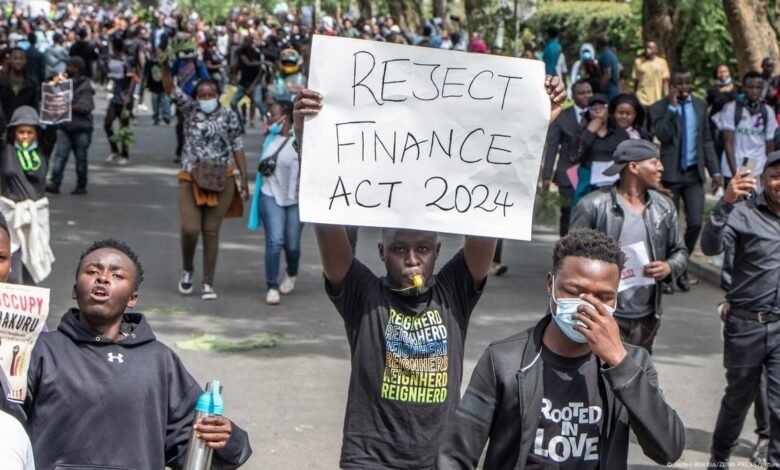
Despite facing its worst political upheaval in years, Kenya’s economy has continued to shine as the shilling remains the best-performing currency globally, while the country’s bond and stock markets rally.
Investors are focusing on Kenya’s improving economic outlook and steady capital inflows, rather than the ongoing political tension.
At the center of the political storm is a power struggle between impeached Deputy President Rigathi Gachagua and President William Ruto.
The Kenyan High Court is currently reviewing a decision by lawmakers to impeach Gachagua, prolonging the swearing in of President Ruto’s favourite and current Interior Cabinet Secretary – Kithure Kindiki.
Earlier this year, protests against planned tax hikes sparked violent clashes, leaving at least 60 people dead. Yet, even amid this unrest, Kenya’s financial markets have remained resilient.
The Kenyan shilling has strengthened by 27% since hitting a record low against the dollar in January, largely thanks to a successful $1.5 billion eurobond issuance, which helped repay other debt.
Kenya’s dollar bonds have also rebounded, outperforming many emerging-market peers, and the country’s stock benchmark has surged over 20% this year.
Also Read: Investors Flock Seychelles, Mauritius Over Favourable Investment Terms
Ronald Muyanja, head of East Africa trading at Citibank NA Kenya, downplayed the potential impact of the Gachagua’s impeachment on market sentiment.
“There are more significant economic factors driving Kenyan local assets than the headlines about the VP impeachment,” he said. “The market sees Kenya on much stronger footing compared to earlier this year.”
Kenya’s financial markets were shaken during the anti-tax protests, with the yield on the country’s 10-year dollar bonds hitting a nine-month high of 11.44% in early August. However, the yield has since dropped by 1.75 percentage points to 9.69%.
Kenya’s eurobonds have provided a 10% return in that period, far outperforming the emerging-market average.
Investor optimism is also being buoyed by Kenya’s access to external funding, including the next disbursement of a $3.9 billion loan from the International Monetary Fund (IMF) expected by the end of October.
Eduardo Moutinho, a market analyst at Ebury Partners, said Kenya’s ability to secure external financing has helped offset concerns about lower tax revenues following the protests.
“On the economic front, the outlook appears to be improving,” Moutinho added.
The Central Bank of Kenya (CBK) Governor Kamau Thugge said he intends to retian the current shilling strength as it is now at appropriate levels.
Moderate Inflation Rate
CBK has also committed to using record foreign reserves to stabilize the currency. As of Thursday, the shilling remained steady at Ksh.128.99 per dollar.
Inflation in Kenya has moderated, pushing the real interest rate to 8.4%, the highest in the region. Despite the central bank beginning to ease interest rates in August, Kenya’s economy continues to grow, with GDP expanding by 5% in the first quarter, driven by strong performances in agriculture and services.
The ongoing impeachment case against Gachagua, if upheld by the courts, could have broader implications for Kenya’s fight against corruption – according to Oxford Economics.
Oxford Economics suggested that Gachagua’s removal could be seen as a positive step toward addressing corruption, which has hindered economic progress.
Gachagua faces five charges, including gross constitutional violations. His legal team argues that the charges are baseless and has called for a delay in the appointment of a new vice president pending the court’s decision.
Analysts are closely watching the developments to assess how they may impact future economic policies.
“The market is observing the situation and evaluating how it may affect policy changes moving forward,” said Samantha Singh-Jami, Africa strategist at Rand Merchant Bank.





